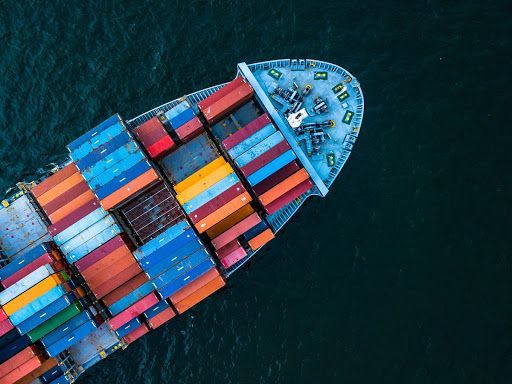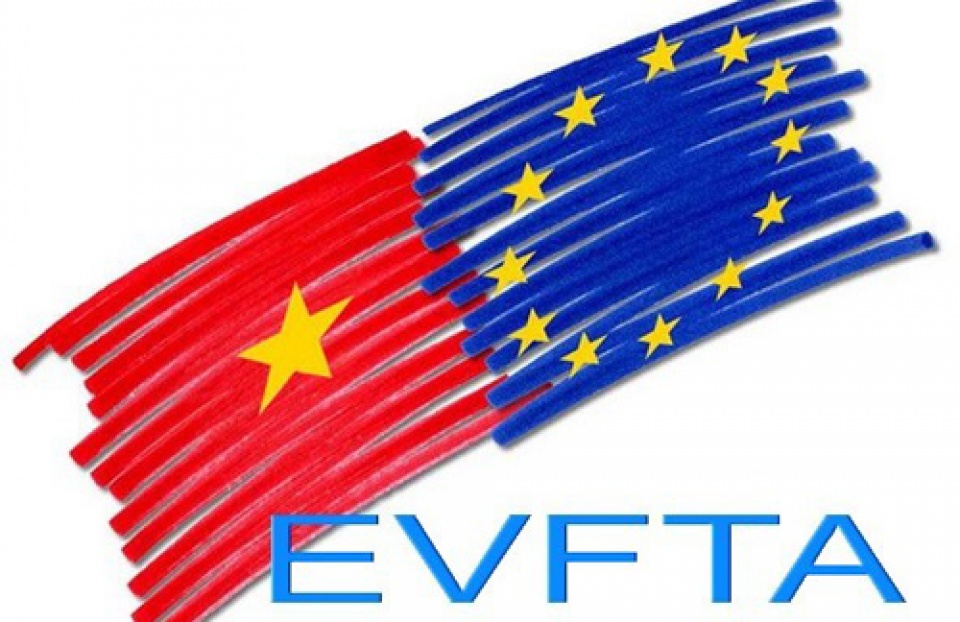
Addressing challenges to ensure the EVFTA continues to serve as a 'highway'
Latest
 |
| The EVFTA marks a significant milestone in the development coopertion between Vietnam and the EU. (Source: Vlr.vn) |
The EU-Vietnam Free Trade Agreement (EVFTA) was signed on June 30th, 2019, and officially came into effect on August 1st, 2020. The EVFTA marks a significant milestone in the development coopertion between Vietnam and the EU, expected to provide important momentum for economic recovery for both parties while the global economy faces to many challenges and difficulties.
This is one of Vietnam's first new-generation FTAs and the first new-generation FTA that the EU signed with a developing country in the Asia-Pacific region. Therefore, this agreement has received great attention from both parties during its implementation.
"A miracle" in trade and investment
According to the report "Assessment of Three Years of EVFTA Implementation on Vietnam's Economy" by the Central Institute for Economic Management (CIEM) - Ministry of Planning and Investment, the EVFTA has contributed to recover strongly export to the EU, especially in the first two years. The impact on exports to the EU in the third year seemed to be less positive, possibly because of many difficulties that global economic in general and the EU in particular facing.
Overall, however, the agreement has helped Vietnam increase imports of machinery, equipment, and modern technology, contributing to the country's industrialization and modernization process, improving product standards, and enhancing integration into global value chains, thereby increasing the competitiveness of Vietnamese products in the global market. Vietnam's exports have improved the ability to meet the import demands of the EU market since the EVFTA came into effect.
Regarding to foreign investment, the investment flows from the EU to Vietnam has shown clear improvements within the overall results of attracting foreign direct investment (FDI) in Vietnam. With many tariff incentives and the removal of market access restrictions in many sectors, the EVFTA has opened the door for EU investors to access and expand investments in Vietnam.
At the recent seminar "Vietnam Report 2045: Global Economic Trends and Policy Implications for Vietnam," Ms. Dao Thu Trang, Deputy General Director of the German Industry and Commerce in Vietnam (AHK), also acknowledged that the "miracle" in trade and investment relations between Vietnam and the EU in recent times was a clear testament to the success of the EVFTA. She said "Vietnam's exports to the 27-member bloc have increased by 50% over the past four years. Vietnam has also imported more machinery, equipment, and textile accessories from Europe with a growth rate of 35-40%.The EVFTA has made Vietnam the largest trading partner of Europe in Southeast Asia. On the contrary, Vietnam is also Germany's largest supplier of goods in the region".
Currently, more than 1,500 European enterprises are effectively operating in Vietnamese market, in which, for every 3 European enterprises, there is one German. They are contributing to sustainable development in Vietnam, not only in economic and social aspects but also in terms of human resources.
 |
| Vietnam's exports have improved the ability to meet the import demands of the EU market since the EVFTA came into effect. (Source: CafeF) |
Results yet to meet expectations
Dr. Tran Toan Thang, Head of the International Department at the Vietnam Institute for Development Strategy (VIDS - Ministry of Planning and Investment), who directly drafted the report to the Government on the impact assessment of the EVFTA, shared that he and his colleagues saw this "historic" agreement as offering great potential for businesses on both sides. He said "We expected for trade boom between Vietnamese and EU businesses but it did not materialize as hoped, possibly due to the impact of the COVID-19 pandemic and other factors from the perspective and assessment of EU businesses".
In the future, to reap more benefits from the EVFTA, Ms. Dao Thu Trang said that from the perspective of European businesses, they hope that Vietnam will make more efforts in implementing commitments, especially regarding to labour, unions, pharmaceuticals, inspection of imported European cars, and approval of agricultural products from Europe.
Europe wants to cooperate with many countries, including Southeast Asian nations, to minimize risks that might arise from over-reliance on a single country. Therefore, multilateralism and diversification are two factors highly valued by European countries and businesses.
Furthermore, environmental protection, climate change, green and sustainable development, digital transformation, cybersecurity and personal data protection are areas Europe values and hopes to collaborate more with Southeast Asia, particularly Vietnam.
From Vietnam's perspective, the CIEM report gave some recommendation such as reviewing and completing regulations and legal documents, enhancing coordination from central to local levels, increasing awareness and dissemination of FTA information to enterprises, particularly small and medium-sized enterprises, and improving the investment and business environment to enhance the competitiveness of businesses and the economy as a whole.
Additionally, it is necessary to strengthen and innovate trade promotion activities, orient export markets to take advantage of opportunities from the EVFTA, review and simplify regulations and procedures for issuing certificates of origin (C/O) to partner markets for exporters, and proactively study content related to structural reforms to support EVFTA implementation.
Addressing these challenges will ensure the EVFTA continues to serve as a "highway" connecting Vietnamese and EU businesses, helping both parties develop economy in the new context.





















